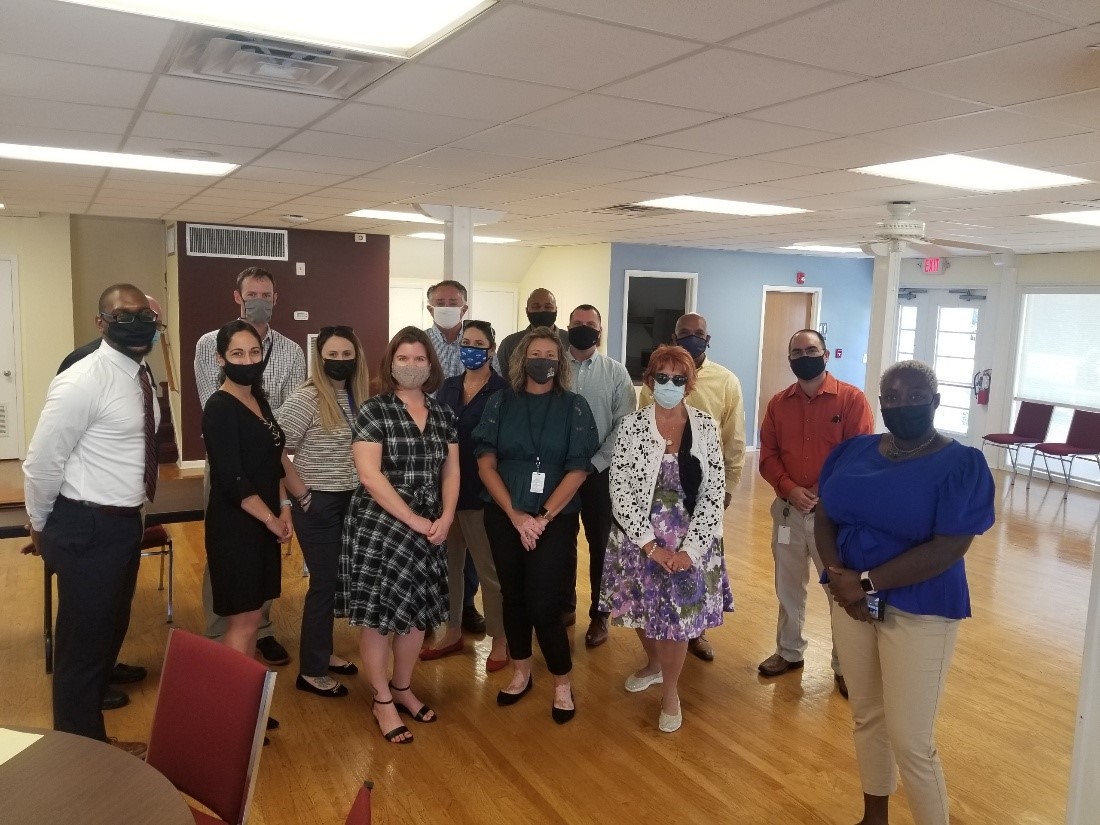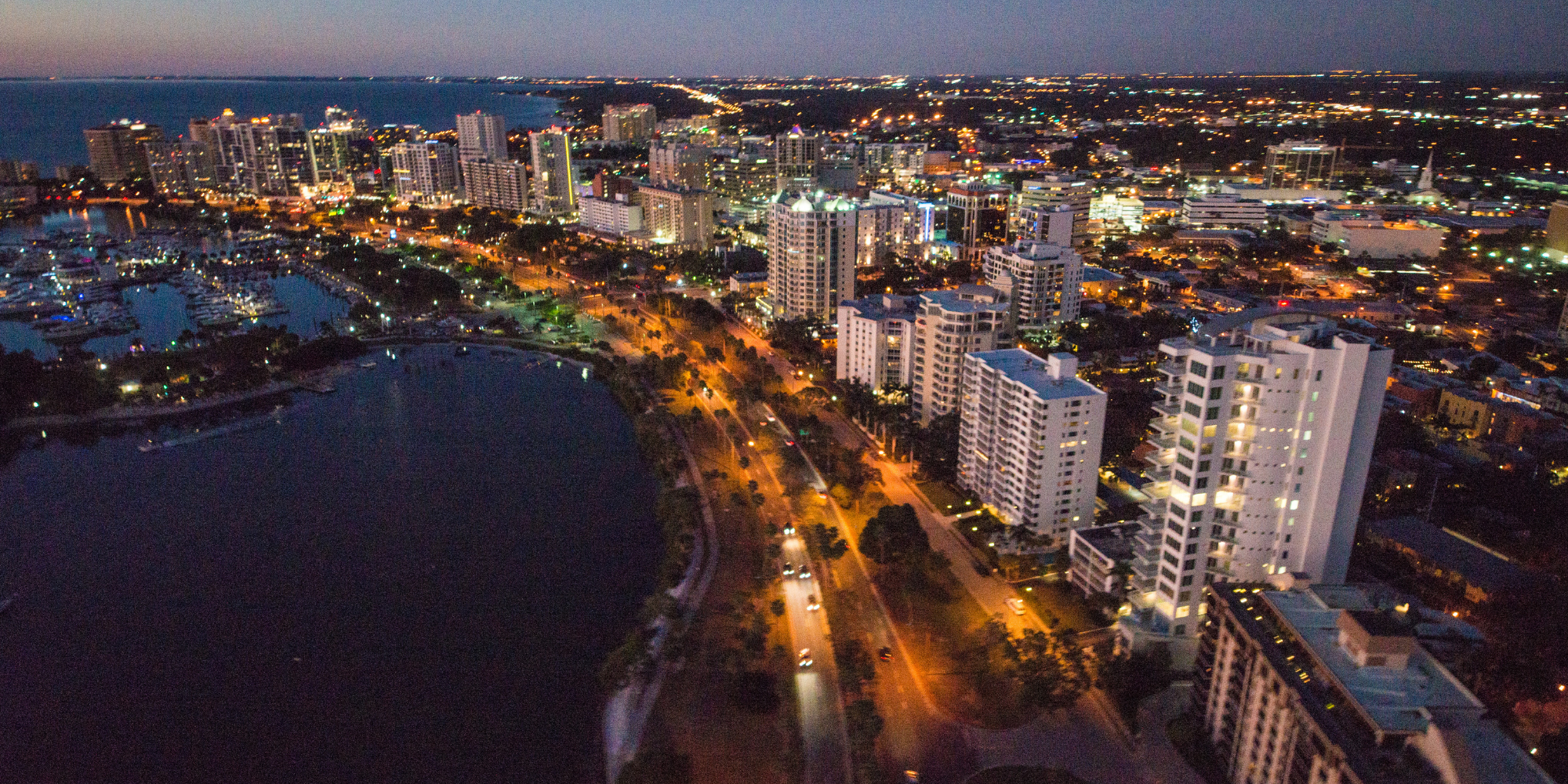After attending a racial equity training session hosted by NLC in 2019, Stevie Freeman-Montes, Sustainability Manager for the City of Sarasota, Florida at the time, returned home knowing that she wanted to share what she had learned with her own city staff. But the timing was a challenge, since Freeman-Montes, who is now Governmental Relations Manager for the City, and her colleague Jeff Vredenburg, the city’s Sustainability Coordinator, won a grant from NLC to participate in NLC’s Leadership in Community Resilience program and develop a project to promote climate resilience in January 2020 – just months before the pandemic began.

Sarasota’s proposed project involved in-person training on the linkages between climate resilience and equity for city staff and leadership. It would be an opportunity for everyone at the City to learn more about the region’s vulnerability to climate impacts such as storms, extreme heat and sea level rise, but also about the city’s historical policies that contribute to present-day inequities among marginalized communities. When climate events strike, they impact these residents — often black and immigrant communities, the elderly, children, the disabled and other at-risk populations — with much more severity. Freeman-Montes and Vredenburg expressly wanted to create buy-in among all city departments for these critical issues, and hoped that the training session would kick off long-term, cross-departmental, resilience-building efforts.

Back in the early months of the pandemic, most of us imagined it would last just a few months, and that life would soon be back to normal, allowing for the City’s in-person training to take place. When that return to normalcy didn’t materialize, NLC had many questions for the Sarasota team: would the city be able to still hold this training session in person? Should they hold the session virtually instead? Freeman-Montes and Vredenburg decided that topics as important but delicate as racial equity and climate change needed to be discussed in person, so they decided to wait until an in-person opportunity was possible.
After a lengthy selection process to find the right partner to host the training, the sustainability team decided to work with the Institute for Diversity and Inclusion in Emergency Management (I-DIEM), a nonprofit founded in 2019. Freeman-Montes and Vredenburg held numerous conversations with city management to gauge interest and tailor the training session to their needs. They also scheduled one-on-one meetings between the trainers and staff to ensure that everyone felt comfortable with the subject and had the opportunity to ask questions before the official training. The team was finally able to host the resilience and equity training for city staff during the summer of 2021 – and it was worth the wait. NLC staff spoke with Vredenburg about the training:
NLC: What was the motivation to hold this training session?
Jeff Vredenburg (JV): The [City of Sarasota’s] Sustainability Office has increased its focus on equity and diversity issues over the last few years, and resiliency has always been a focus. Our Climate Adaptation Plan incorporates resiliency and adaptation measures for city infrastructure, but a major component was still missing – we wanted to ensure that policymakers knew how climate impacts would disproportionately impact high-risk communities and learn about ways they could incorporate this knowledge into their jobs.
NLC: What was the biggest challenge your team faced (besides the obvious pandemic-related issues)?
JV: We had originally planned for the grant to include trainings for commissioners in addition to staff, but because of COVID-19 and other issues that came up, it was decided to focus on staff for now. Some of the commissioners were disappointed but we hope to keep the momentum going with additional training offered in the next year. An equally difficult challenge was adjusting the scope and competency level of the training. We wanted it to be educational in terms of the equity and resilience aspects, but finding that balance between not too simple and not too advanced was challenging. Since this was the first training of its kind, we erred on the side of simplicity and clarity. I think if we could have held two or more sessions, we could have made the subsequent sessions more advanced and expansive.
NLC: What advice would you provide for other cities, and what would you have done differently?
JV: It’s very helpful to distribute surveys in advance of the event and before you design your training to assess your participants’ level of expertise and understanding. Also, making sure you and the trainers are all on the same page in terms of the material to be covered – a little extra work up front can pay large dividends when it comes to the training. Ensuring that there is a clear understanding between you and the trainer is critical, especially with tough topics like equity and resilience.
NLC: Which next steps will you take to maintain momentum on racial equity and climate resilience?
JV: We have started working on a strategy to operationalize equity and resilience and presented a draft city leadership with the goal of keeping interest up and maintaining forward progress. Additionally, we are looking for other grants to support this work.








